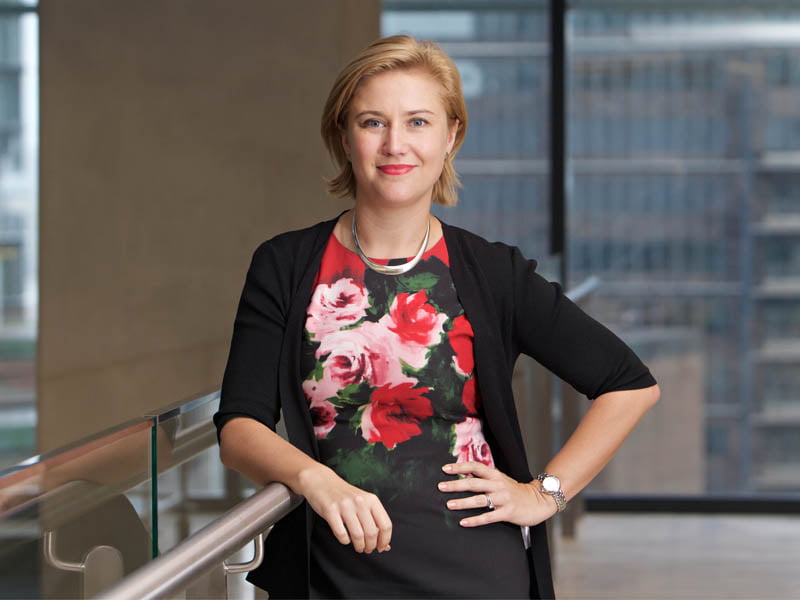Australia’s RegTech companies need to get their skates on and focus on the issue through a more collaborative lens if they are to avoid being overtaken by international rivals, according to Thomson Reuters executive Julia Walker.
Ms Walker is the head of risk market development for Thomson Reuters in Asia Pacific and Japan – a remit that covers around 18 countries in the region.
She said that demand for automated solutions to regulatory challenges was burgeoning thanks to a “perfect storm of cost, regulatory change, and we are getting to a point you can’t just throw people at the problem anymore.”

At the same time, international attempts to rein in terrorism by staunching access to funds was accelerating demand for advanced technologies that take know your customer (KYC) capacity to a new level.
She said there was also mounting interest in solutions blending advanced technology with big data that had the potential to help rein in human trafficking, slave labour and child exploitation in supply chains.
After participating in a panel session at InnovationAus.com’ RegTech Australia 2017 event in Sydney this week, Ms Walker said the local RegTech scene was vibrant and had the support of key regulators.
But she warned that other markets were also moving very fast.
“In Hong Kong it’s a bit rawer – there are a lot more FinTechs, they are younger, there’s a lot of diversity and new energy coming through that is supported by academics,” she said.
Meanwhile in her home base of Singapore, strong government support had spurred the sector and “If you are aware of what is happening in China and the US in the broader ecosystem then you need to be quite scared.”
The maturity of Australia’s financial market made it challenging for RegTech start ups which; “Need to have really crisp solutions here whereas in another country perhaps – they don’t have to be the best, but tier two tier three companies might be interested.”
Ms Walker said that RegTech companies prepared to partner across the ecosystem would be better placed than those organisations which were determined to go it alone.
Thomson Reuters, she said, was eager to play a role in that ecosystem, offering RegTech companies API connectivity to its platforms and data.
She offered the example of Thomson Reuters’ World-Check database, which she claimed is the world’s biggest database of high risk individuals and entities in the world, used by 49 of the 50 largest banks to support their KYC and anti-money laundering (AML) obligations.
That database is available to RegTechs through an API while Thomson Reuters is willing to facilitate access to its Eikon platform for apps that can streamline compliance and control she said.
“We need to rethink the way businesses work together. Collaboration is the key word for moving this whole ecosystem forward,” said Ms Walker.
“The real revolution comes when you can get the stack together and that stack is open source, the API economy, big data and data lakes, blockchain, cognitive computing and AI, and the cloud. Get all that together and it starts to be really transformative,” she said.
And that transformation extends across all levels of society she said, offering the example of ID2020 a UN initiative to use technology to ensure that ‘every person on the planet can access a unique digital identity as part of their basic human rights.’
That, she said, was important because; “There are 1.5 billion people without an identity, and not included in the financial system. Those people are really vulnerable and that vulnerability means they are more susceptible to being trafficked and used, and to go into criminal organisations, and so we have to address inequality.
“I would like the RegTech conversations to be more around ethics and human rights that just around a process improvement – that is the opportunity.”
She said that there was the opportunity for emerging solutions, such as the Everledger blockchain based diamond register, to take a stand against child labour and refuse to include diamonds on the register where children had been exploited.
While Thomson Reuters may be involved in some more prosaic projects (it is currently working with ANZ and has interest from the other three majors on creating a KYC utility for the banks to streamline their compliance process – it has already deployed such a system in South Africa) Ms Walker is focused on a longer game.
“In the future – we will all be on blockchain and we (Thomson Reuters) will probably be an oracle in the blockchain,” – a trusted source of truth that can be accessed and interrogated.
“The fourth industrial revolution is upon us – I think we need to think big,” she added.
Disclosure: Thomson Reuters was a sponsor of InnovationAus.com‘s RegTech Australia 2017
Do you know more? Contact James Riley via Email.

